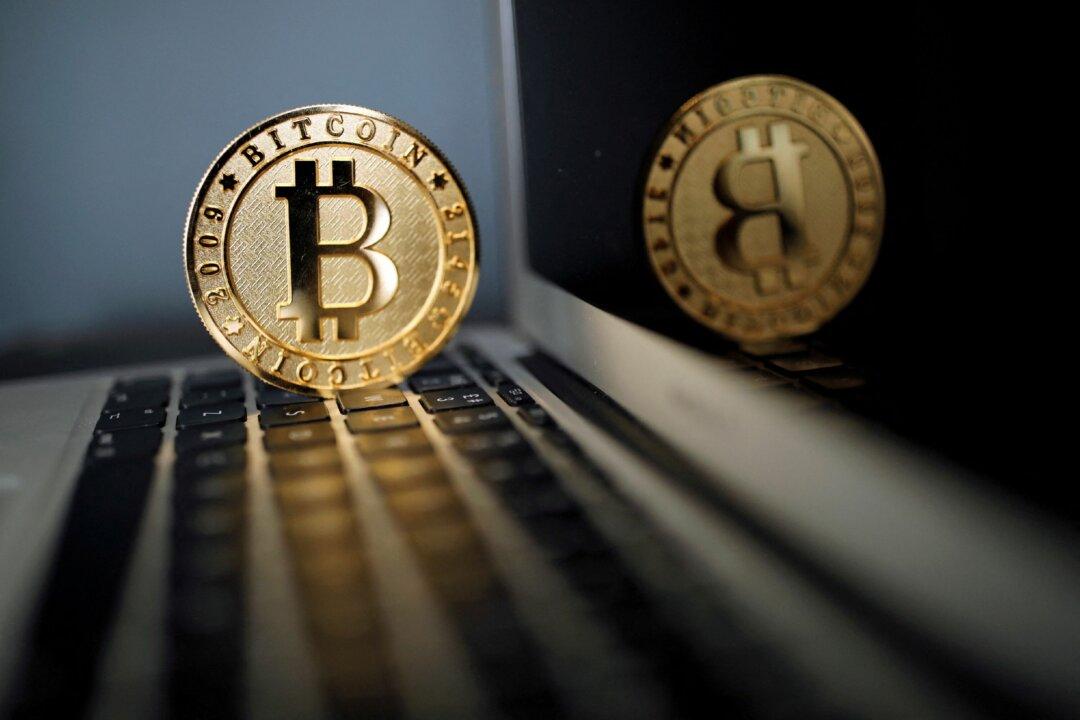The cryptocurrency bitcoin fell to its lowest value since July 2021 during May 9 trading amidst a fall in stock indexes as central banks around the world raised key interest rates.
After opening at about $34,000, bitcoin was trading at $32,152 as of 16:38 UTC (12:38 p.m. Eastern time). Compared to the 2022 peak of approximately $47,500 hit on March 29, bitcoin is trading lower by 33 percent. This is the lowest level since July 2021 and 53 percent lower than the all-time high of $69,000 hit in November 2021. Bitcoin has registered four consecutive daily declines and has lost 13 percent of its value in May 2022.





